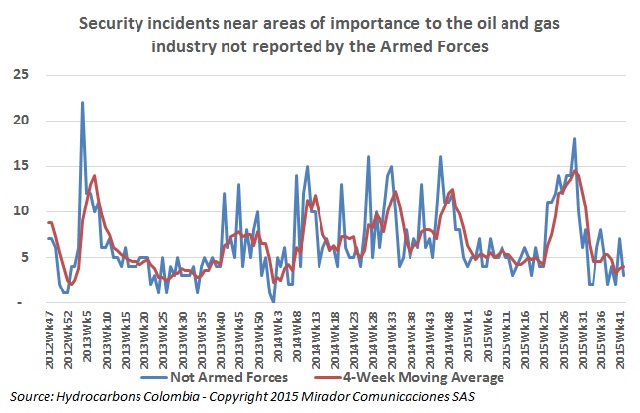The Impala port project in Barrancabermeja, Santander on the Magdalena River will reach full operation in the second quarter of 2016. The operator, Swiss firm Impala Terminals says the terminal is already using the Magdalena River to transport oil and is at 30% of full capacity.

As part of its deal with business sectors of the Caribbean coast, the Ministry of Mines and Energy (MinMinas) is moving forward with plans to hold a tender to build a gas pipeline that will connect the Atlantic coast.
Ecopetrol (NYSE:EC) says it has finished a demonstration plant in Chichimene in the Meta Department which uses a technology to lighten heavy and extra heavy crudes, allowing them to be shipped in pipelines while cutting the company’s need to purchase naphtha as a diluent.
After Ecopetrol (NYSE:EC) said in no uncertain terms there is no money to modernize the Barrancabermeja Refinery despite outcry from residents, the oil workers union USO has charged that the NOC is planning to sell the unit, which the firm denies.
Ecopetrol’s (NYSE:EC) Cartagena Refinery (Reficar) has shown recent, serious advances, but there is little good news from another problematic refinery construction, this one an ethanol plant from the NOC’s biofuels subsidiary, Bioenergy. And critics ask whether the mistakes continue.
President Juan Manuel Santos was on hand to receive the first shipment of crude destined for the modernized Cartagena Refinery (Reficar), with full capacity expected for the first half of next year.
A modernized and functioning Cartagena Refinery (Reficar) appears to be close, and the refinery is expecting to have a substantial impact on the general economy, although how much is debatable.

A regional military publication profiled the Colombian armed forces troops assigned the task of protecting the nation’s pipelines from guerrilla attacks, and detailed some of the collaboration with other government agencies on the environmental cost.
Low water levels on the Magdalena River have complicated the potential of the recently opened waterway to be used as a transport corridor, resulting in losses for shipping companies and higher costs for Ecopetrol (NYSE:EC).
Ecopetrol (NYSE:EC) has confirmed that it has fired up its industrial services units at the Cartagena Refinery (Reficar), another step towards a full operational launch of the long-delayed project.